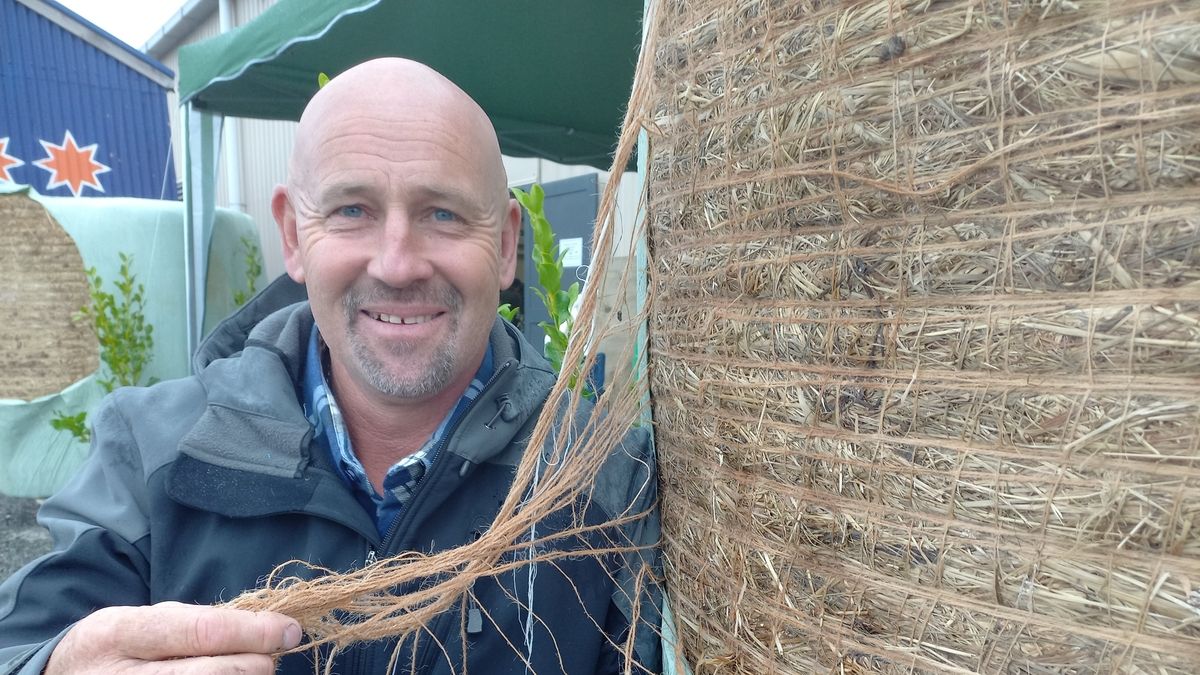
As the sun dipped below the horizon, casting long shadows over the fields of Waimumu, a quiet revolution in agriculture was celebrated at the Southern Rural Life Farm Innovation Awards. Amidst the buzz of innovation and the exchange of ideas, one invention stood out not just for its ingenuity but for its potential impact on the environment and farming practices around the globe. This is the story of Kiwi Eco Net, an edible bale net created by deer farmer Grant Lightfoot from the picturesque locale of Orepuki near Riverton, and how it captured the imagination and acclaim of the agricultural community.
A Farming Challenge Turned Opportunity
At the heart of Kiwi Eco Net’s inception was a simple yet pervasive problem: the environmental cost of plastic baleage netting. Grant Lightfoot, the mind behind this revolutionary product, was driven by a commitment to sustainability and the well-being of his livestock. Frustrated by the sheer volume of plastic waste generated on his farm and the risks it posed to his animals, Lightfoot embarked on a journey to find a solution. Through extensive research and experimentation, he developed a netting material made from natural plant fibers, not only biodegradable but also safe—and indeed nutritious—for cows to eat. This innovation promised to transform the laborious process of baleage feeding, eliminating the need to remove and dispose of plastic wrap, thereby reducing waste and saving time.
From Concept to Acclaimed Innovation
The path from concept to realization was not a straightforward one for Lightfoot and Kiwi Eco Net. Seeking to refine and perfect his invention, Lightfoot turned to investors in the United States, securing the support needed to bring his vision to life. The culmination of this effort was a debut at the Southern Field Days, where Kiwi Eco Net was not only introduced to the public but also awarded the open section at the Southern Rural Life Farm Innovation Awards. Recognition was swift and enthusiastic, with attendees from as far as Scotland lauding the net as the best innovation seen at any Field Day. Such acclaim underscored the global relevance of Kiwi Eco Net, positioning it as a pioneering solution to a universal challenge in agriculture.
The Broader Impact and Future Prospects
The implications of Kiwi Eco Net’s success extend far beyond the immediate benefits of reduced labor and waste. By offering an alternative to plastic, Lightfoot’s invention taps into a growing demand for sustainable agricultural practices, aligning with global efforts to mitigate environmental degradation. As Kiwi Eco Net prepares for wider distribution and adoption, its potential to serve as a catalyst for change in the agricultural industry is increasingly apparent. Moreover, the innovation serves as a testament to the power of individual initiative in addressing complex environmental issues, inspiring others to seek out and develop solutions that benefit both the planet and its inhabitants.
While Kiwi Eco Net has paved the way for eco-friendly agricultural practices, it shares the spotlight with other innovators like Future Post, whose waste plastic fence posts offer a durable alternative to traditional wooden posts. Together, these innovations represent a shift towards sustainability in farming, highlighting the potential for ingenuity and dedication to reshape the industry. As we look to the future, the legacy of Kiwi Eco Net and its fellow innovators will undoubtedly be measured by their impact on fostering a more sustainable, efficient, and environmentally conscious agricultural landscape.
